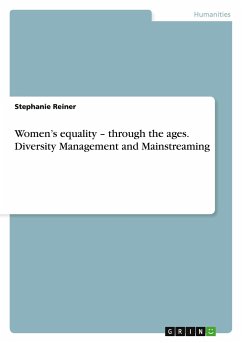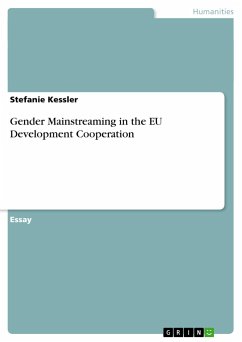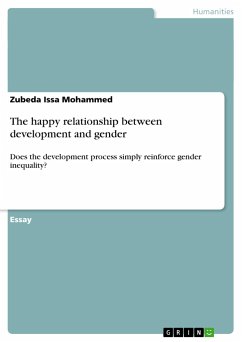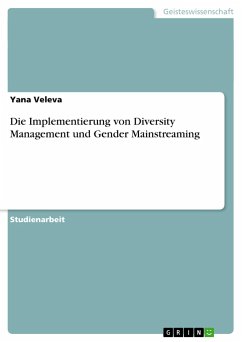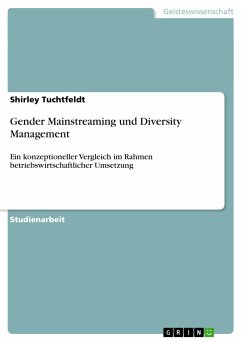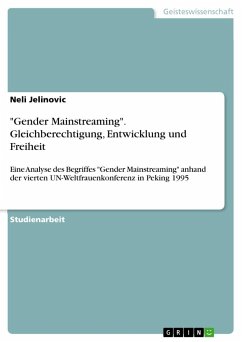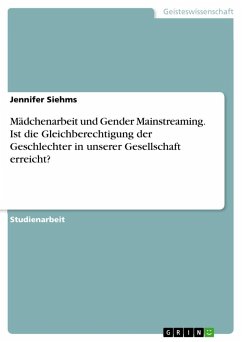Document from the year 2013 in the subject Gender Studies, grade: 1,3, University of Applied Sciences Amberg-Weiden, language: English, abstract: "Men and women are equal" (article 3 Basic Law), in spite of this article women have a disadvantage in Germany in many matters - especially in their professional life. But the last century had a lot of changes.For the 19th century it was believed that boys and men are "more valuable". (Pawlak) This has been seen in their rights, because only men were allowed to go to election. (Spiegel) Women had no right to vote and could not study therefore not being able to graduate or get a degree from school. The male sex was considered to be smarter in several areas than women. Women's work was expected to be cleaning, cooking, washing and baby-sitting. Not until the 1820's, "girl schools" were introduced, but only for the higher classes of society. However, the goal of these schools was not for general education. The goal was to prepare women forthe role as mother and housewife. Therefore, these schools taught mainly household topics. (Pawlak)

